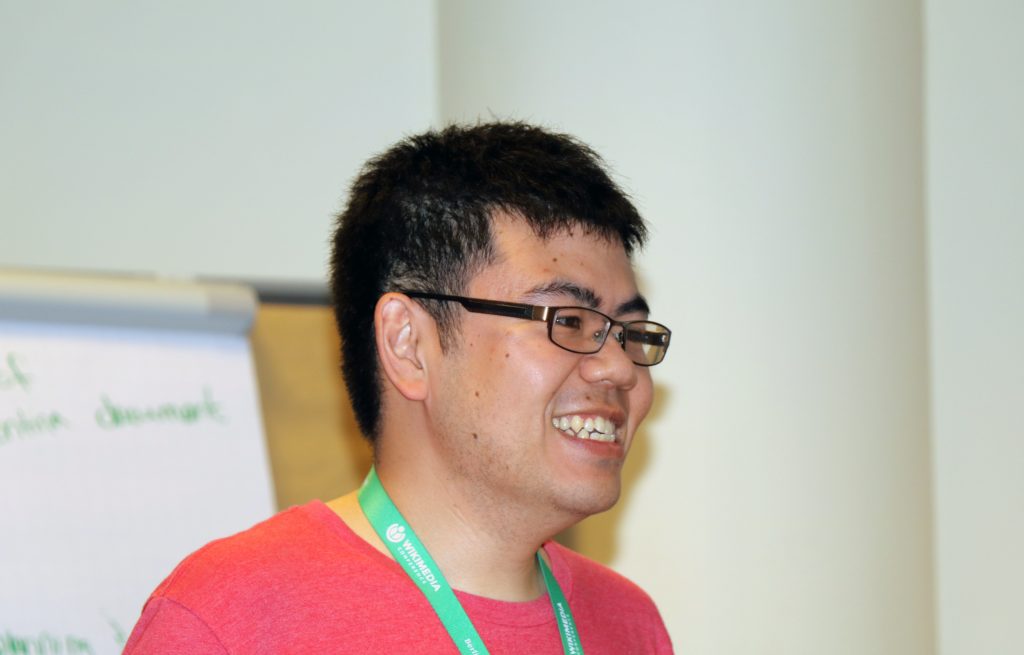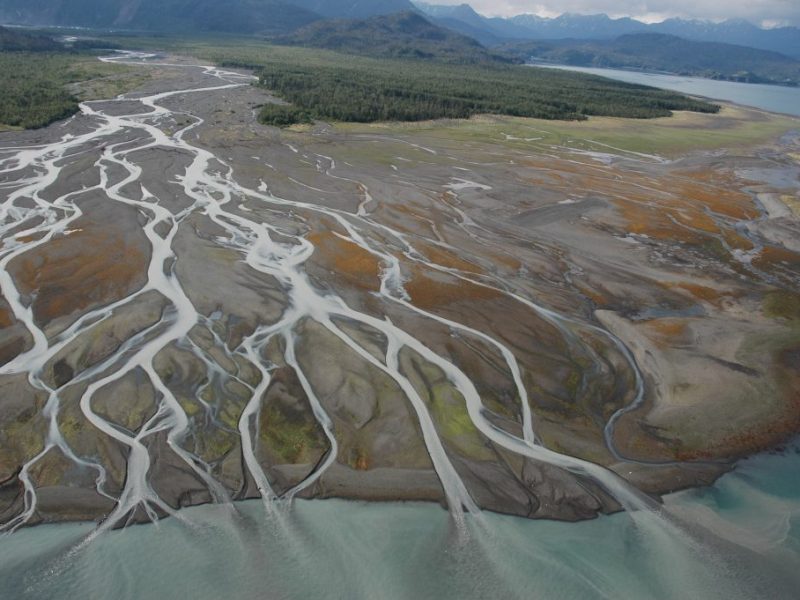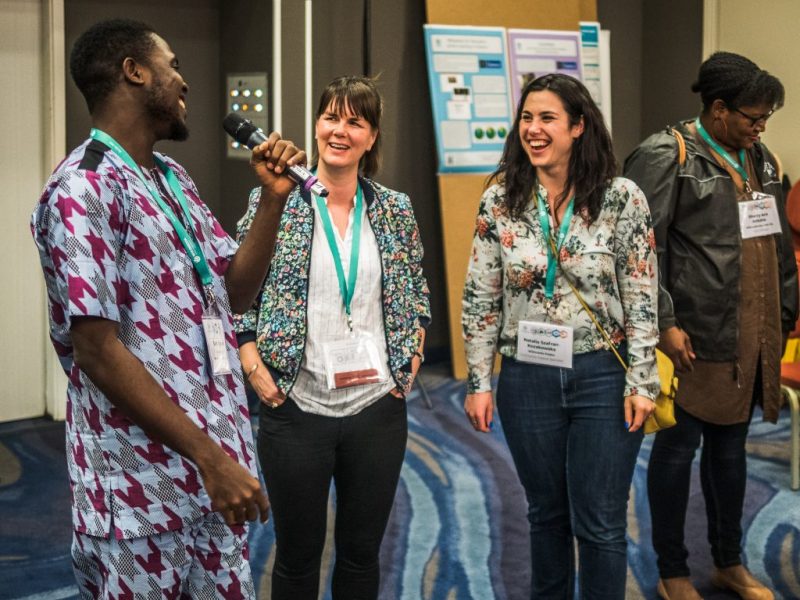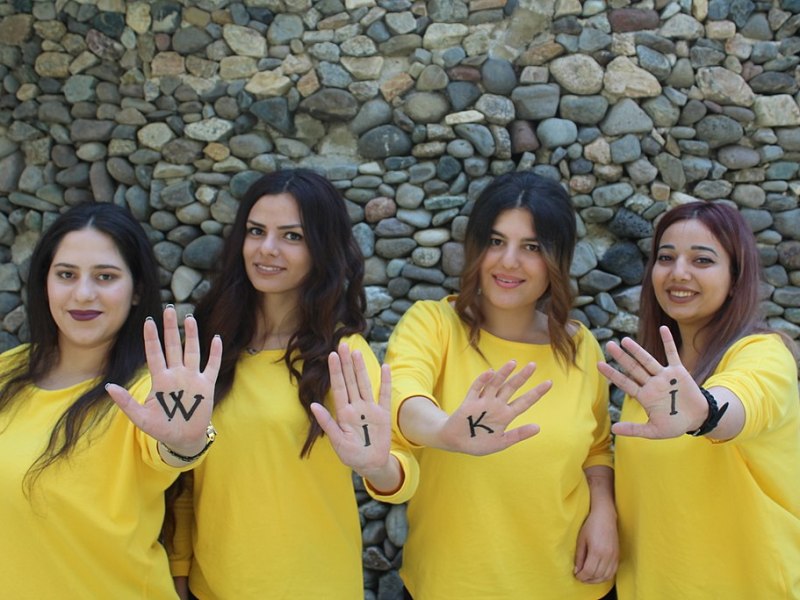Over the last few years, the annual Wikimedia Conference has seen many more individuals in emerging communities. This year, Wikimedians from 79 countries, representing nearly one hundred movement affiliates, contributed to the event’s cultural, regional, and language diversity.
Community member Rupika Sharma interviewed several of these attendees to get their thoughts on the Wikimedia movement, their own communities, the Wikimedia 2030 strategy process, and how their involvement with it all will change over the next five years. They include:
- Felix Nartey, Open Foundation West Africa
- Sam Oyeyele, Wikimedia User Group Nigeria
- Coenraad Loubser, Wikimedia South Africa
- Liang-Chih Shang Kuan, Taiwan chapter/user group
- Rodrigo Barbano Tejera, Wikimedia Uruguay and Wikimedia Digitization User Group
- Nahid Sultan, Wikimedia Bangladesh
Here’s more about Liang-Chih Shang Kuan. Tune back over the next few weeks to read the rest of the interviews as they are published.
———
What are some of the main projects that your user group is working on for the free knowledge movement, and where do you see yourself with regards to the Wikimedia 2030 strategy?
[W]e would like to grow our community in a more diverse, more grassroot way. This year, in Taiwan, we are one of the earliest chapters of Asia. In 2007, we hosted the very first Wikimania in Taipei. That’s before my generation—the dinosaurs hosted that event. We have monthly meetups in Taipei. We have like monthly meetups in those cities. We started Wiki Women to help Art+Feminism edit-a-thons to increase female articles. We also work with indigenous people with the smaller incubator Wikipedias. There are still no language groups there like Punjabi Wikimedians which is thriving now. Some of those indigenous languages are really small, of about 500 people. Taiwan is a small island with about 21 million population living there and there are 16 different indigenous languages there. Hopefully, in the next five years, as we mentioned in the Asian meetup, we are in the process of the Simple Annual plan Grant. Which means in the numbers, we are hiring the people from 3-4 staff limit with Simple Annual Plan Grant. If you want to have a more structured, non-profit scale, then we would need to look forward for the another process for Annual Plan Grants. Hopefully, in next five years, we can become more comprehensive organizational structure just like Wikimedia Australia Chapter that offered to do ASIAN Wikimedia Conference. So, that is our vision for next 5 years.
What exactly is your vision of the free knowledge movement and what is your role in it?
For our chapter, it is a big moment to really step back and rethink how everything functions now. Does the current mechanism work? If its not working, should we try to rework on the whole structure. I personally feel intimidated, a little scared. It doesn’t work, let’s tear it down, and build a new thing. I fear if that is the case, maybe it would be better. But we will need a lot of effort in building a new skin. Sounds like I am more conservative person, towards Wikimedia Conference 2018. Before this year, I have been here four times since 2014 and we had just starting to become a good non-profit and leant how to become a good Wikimedia Affiliate, how to do financial planning, about regional collaboration. There were ideas, most of them were program based. But this year, it is based more on governance wise, structure wise. And you dont like, we can blow it up. This kinds of reinvents the mindset and it blows my mind. I have been feeling that it is very good that whole organization of Wikimedia Movement can be open for all the suggestions. I am very honored to be in this kind of mindset of the whole community but I also fear a little about how it may go in the future.
As told to Rupika Sharma (User:Wikilover90), Wikimedia community member
This interview has been minimally edited, preserving as many of the interviewee’s words as possible.




